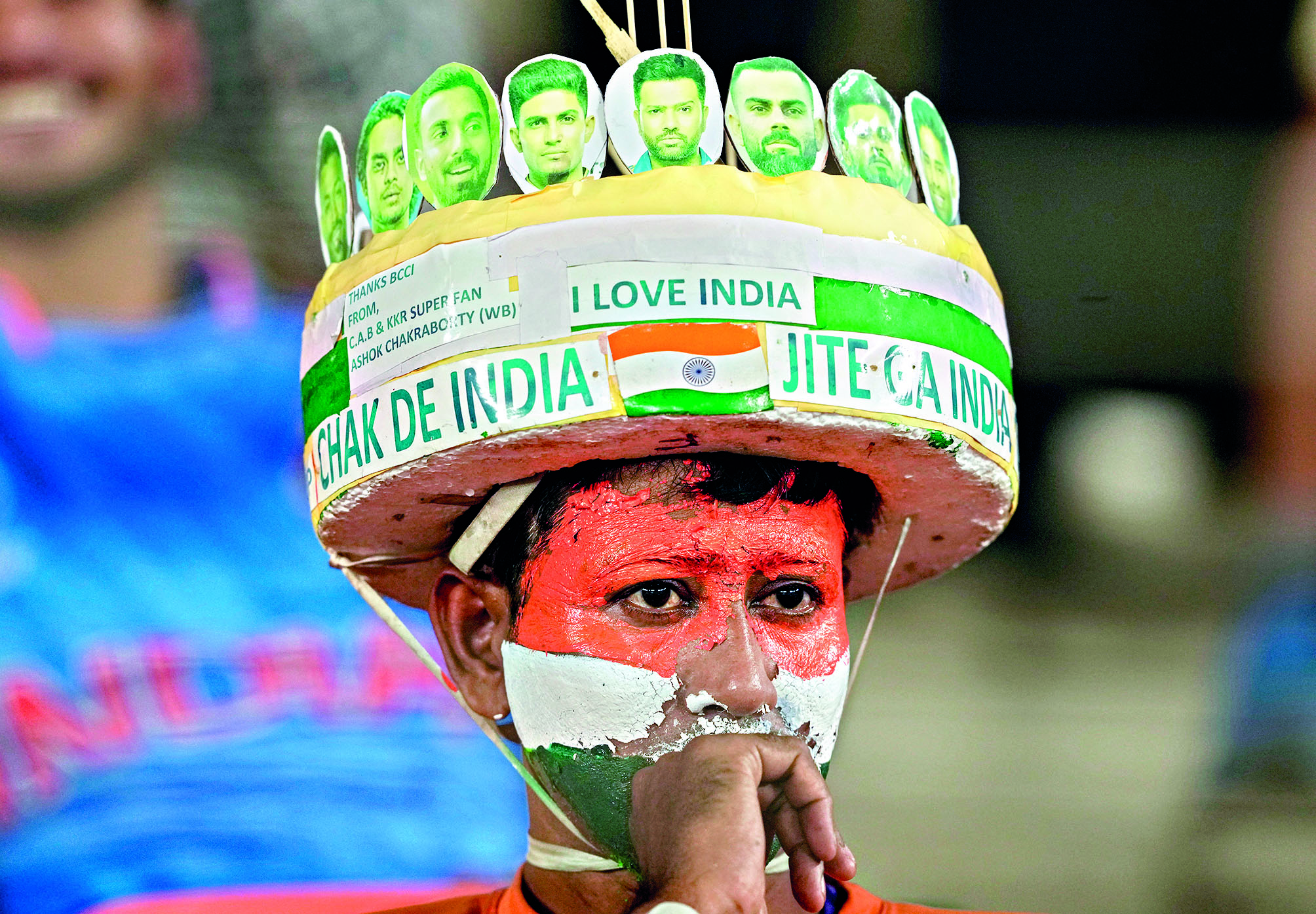Beyond the blues
The extreme emotional outbursts following India’s defeat in the ICC Men’s Cricket World Cup final can be explained through a range of psychological phenomena that should be channelised in favour of a more composed response

It has been a week already, but the wound is still quite fresh. On November 19, 2023, we all watched on to witness history being made for our country. We prayed, hoped, and hooted for India to win the ICC Men’s Cricket World Cup 2023, but a billion hearts broke as India lost the ICC 2023 World Cup final.
How badly can a loss impact some fans?
Most of us mourned, sulked, got angry, and perhaps even wept when our country lost. Since each person grieves differently, there were those who had far more impact than others.
Heartbroken by the loss of India in the World Cup final against Australia on Sunday, two people died by suicide in separate incidents in West Bengal’s Bankura and Odisha’s Jaipur. An Andhra Techie died of a heart attack after India’s defeat in the Cricket World Cup.
Why does it hurt when your favourite team loses a match?
The emotional distress or pain when your favourite team loses a match is often tied to psychological and emotional investment.
Social identity theory: This theory explains how a person’s self-concept and self-esteem are partially derived from the groups they belong to. When the team loses, it can impact the fan’s self-esteem due to their identification with that team.
Identity fusion and sense of belonging: Supporting a team can become part of one’s identity. Individuals who perceive their own identity as being intertwined with a group, like a sports team, often deem themselves “true fans”, and are always abreast of team developments. They may have had a knack for the sport or a wishful desire to pursue the sport mainstream.
Basking in reflected glory (BIRGing) and cutting off reflected failure (CORFing): BIRGing is when individuals associate themselves more with successful teams or individuals, enhancing their self-esteem by affiliating with winners. CORFing, on the other hand, involves distancing oneself from losing teams or individuals to protect self-esteem.
Emotional attachment and parasocial relationships: Some fans develop one-sided relationships with athletes or teams. This attachment can lead to feelings of disappointment, frustration, or sadness when the team doesn’t perform as expected. Some fans also become “haters” when their idols lose, as they feel a personalised sense of betrayal.
Sense of control and competitiveness: Certain individuals have a low frustration tolerance for loss and failure. These fans are considered hyper-competitive and “poor losers”, whether it’s a sport they play or their favourite team. A loss challenges their sense of worth and can be frustrating for those who are competitive by nature.
Escapism and significance: Sports often serve as a form of escapism. Fans invest time and emotion into games, seeking entertainment and significance. A loss can disrupt this escape and the perceived importance of the event.
Strong reactions like dying by suicide cannot be explained only due to the loss of sports. Suicide is a multicomplex malady. This act may be due to previous underlying mental health conditions, genetic predisposition, poor coping skills in general, a lack of social support, and finally, the added stress of the loss of their favourite team.
How to process the feeling of loss?
While no one wants to lose, accepting the loss is necessary.
* Allow yourself to feel all the emotions: It’s normal to feel upset, disappointed, or even sad after a loss. Acknowledge rather than suppress emotions;
* Vent: Talk to friends or fellow fans who understand what you’re going through;
* Put it in perspective: Remember that sports are just one aspect of life. The outcome of a game doesn’t define your worth or your country’s worth;
* Focus on the positives: Celebrate the Indian team’s journey and the continuous wins they had during their entire tenure at the World Cup;
* Avoid blame or negativity: There is no point in trying to peg the blame. Try to avoid negative discussions that can further dampen your spirits;
* Look forward: Use this as motivation for the future.
Understand that losses are part of sports, and the team will have more opportunities to perform better;
* Support the team: Even in defeat, showing support for the team can be uplifting;
* Work on accepting failure: Whether yours or your team’s, learning sportsmanship to cherish wins and losses as a part of life is a learned skill.
Send your questions to [email protected]



